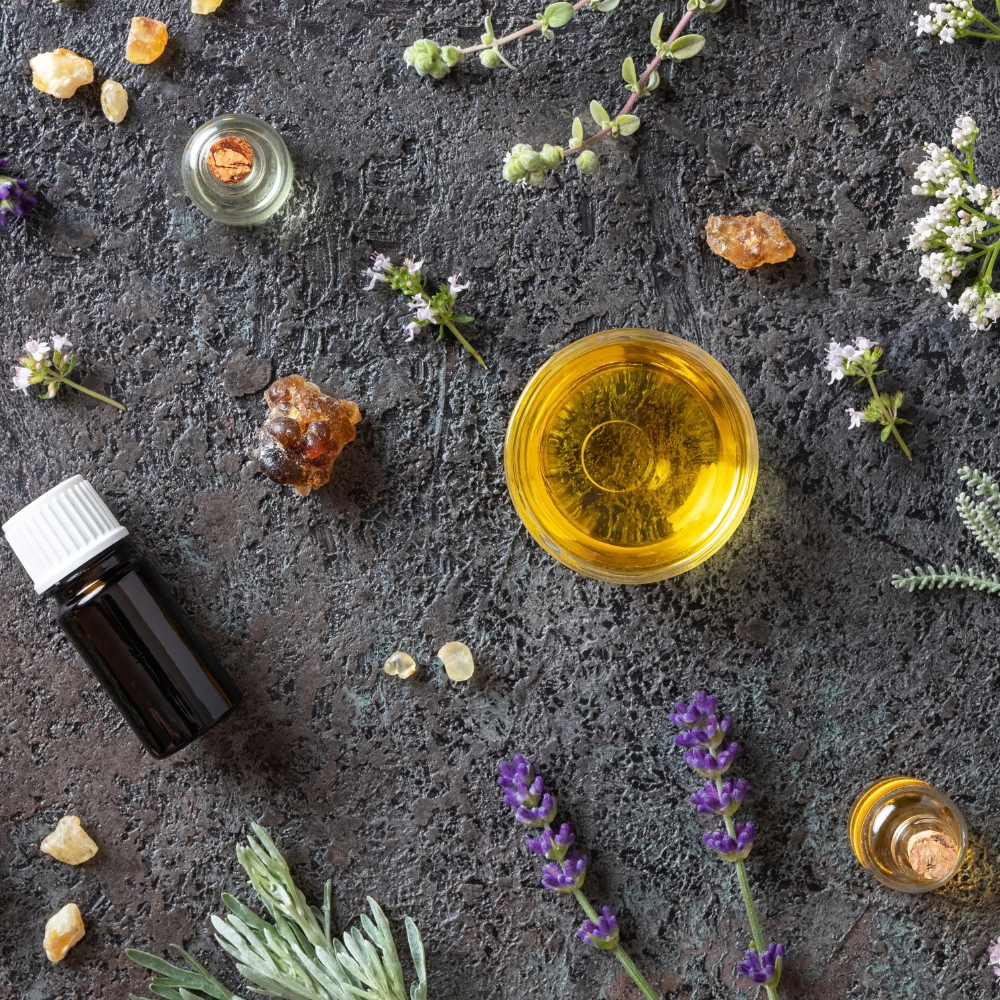In our modern world, where stress and anxiety often run rampant, people increasingly seek holistic wellness approaches that connect the mind, body, and spirit. With their rich history and diverse therapeutic properties, essential oils have emerged as a potent tool in this quest. These concentrated plant extracts have been used for centuries for their healing effects on both the physical body and the spiritual self. In this blog, we'll delve into the world of essential oils, exploring their uses for health and spirituality.
The Essence of Essential Oils
Essential oils are volatile compounds extracted from various parts of plants, including leaves, flowers, stems, and roots. These oils capture the aromatic essence of the plant and contain its beneficial properties. Each essential oil boasts a unique composition, giving rise to various potential health and spiritual benefits.
Physical Health Benefits
- Relaxation and Stress Relief: Lavender, chamomile, and bergamot essential oils are known for their calming properties. They can help promote relaxation while alleviating stress and anxiety.
- Immune Support: Essential oils like tea tree, eucalyptus, and thyme have antimicrobial and immune-boosting properties that can aid in fighting off infections.
- Pain Management: Peppermint and eucalyptus oils contain compounds that can help alleviate headaches, muscle pain, and inflammation when applied topically or used in aromatherapy.
- Respiratory Health: Eucalyptus and pine oils stimulate breathing and respiratory health. They can be diffused, added to steam for inhalation, or added to a hot bath.
Spiritual and Emotional Well-Being
- Mood Enhancement: Certain essential oils, such as citrus oils like lemon and orange, as well as frankincense and ylang-ylang, are believed to uplift mood and promote positivity.
- Meditation and Mindfulness: Essential oils like frankincense, sandalwood, and cedarwood have been used in spiritual practices to enhance focus, facilitate meditation, and create a sense of sacred space.
- Energy Alignment: Some individuals use essential oils like rosemary and peppermint to stimulate mental clarity and enhance energy flow, helping them feel more connected to their inner selves.
- Emotional Release: Essential oils can be used in aromatherapy to facilitate emotional release and healing. Oils like chamomile and lavender are commonly used for this purpose.
Using Essential Oils Safely and Effectively
While essential oils offer numerous benefits, it's essential to use them with care:
Dilution: Most essential oils are highly concentrated and should be diluted with a carrier oil before applying to the skin. This prevents skin irritation and sensitization.
Patch Test: Before using a new essential oil, perform a patch test on a small area of the skin to check for any adverse reactions.
Quality Matters: Choose high-quality, pure essential oils from reputable sources. Organic and therapeutic-grade oils are often preferred.
Application Methods: Essential oils can be used in various ways, including aromatherapy through diffusers, topical application, and even ingestion (for certain oils and under professional guidance).
Personal Sensitivities: Be aware that individual reactions to essential oils can vary. What works well for one person might not be suitable for another.
Embracing the Aromatic Journey
As we navigate the complexities of modern life, the allure of essential oils beckons us to explore their multifaceted world. From their potential to calm our minds and bodies to their role in elevating our spiritual connections, these natural extracts offer a sensory journey that's both profound and personal. Whether diffused in the air, jewelry diffusers, added to bathwater, or applied during meditation, the aromatic embrace of essential oils invites us to unlock the door to better health and heightened spirituality.
